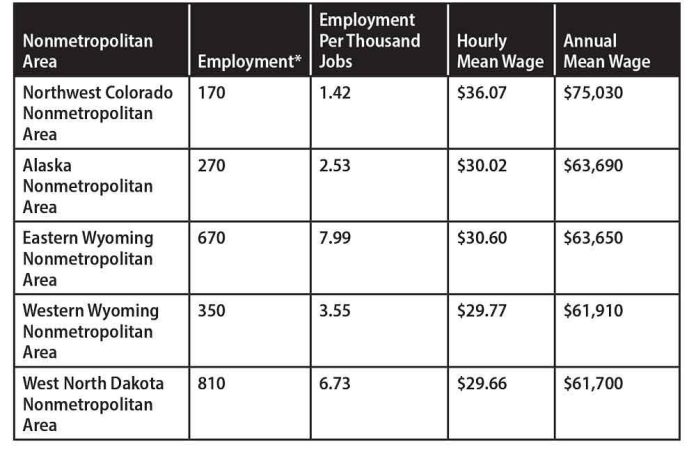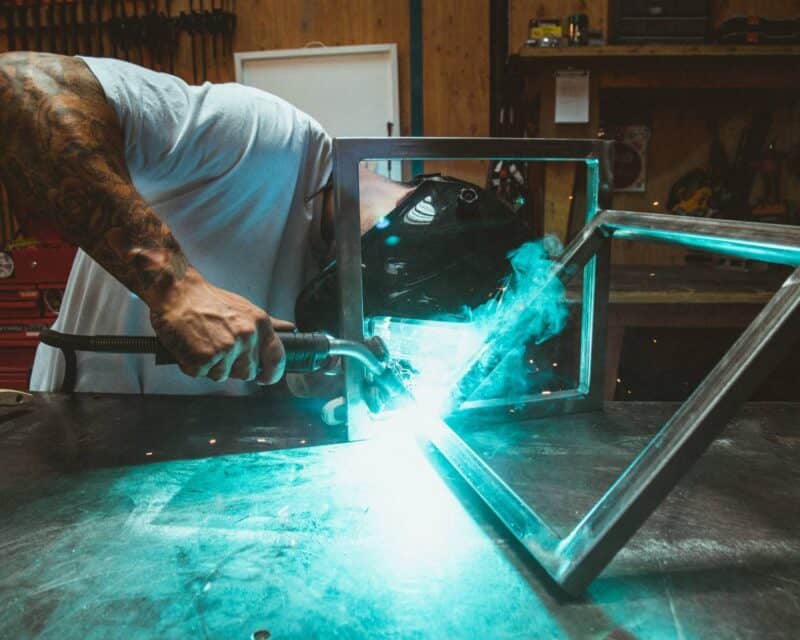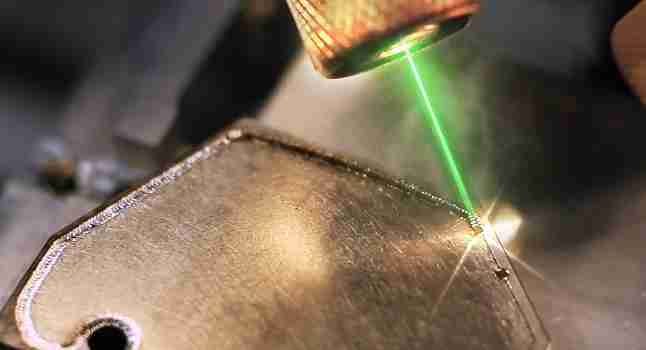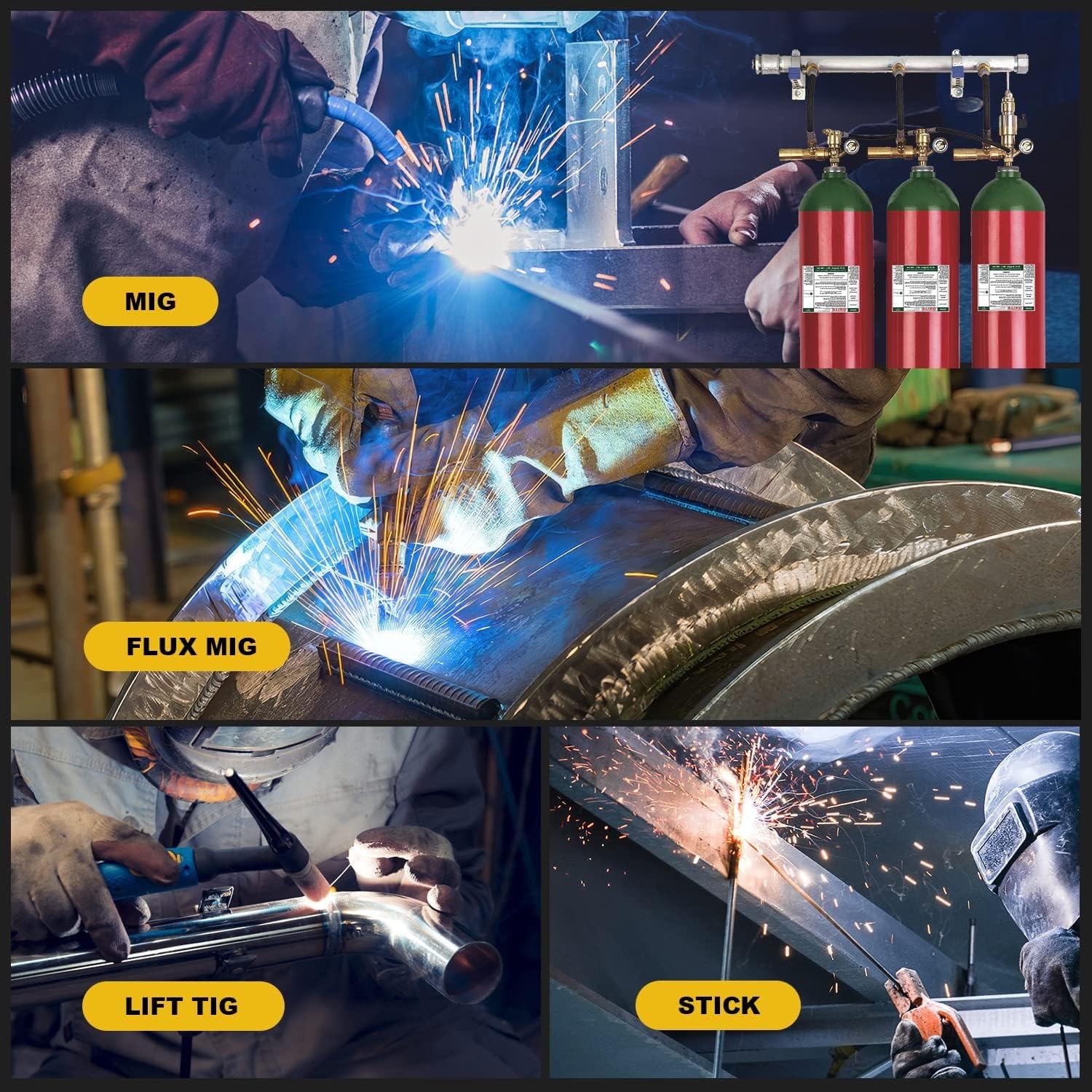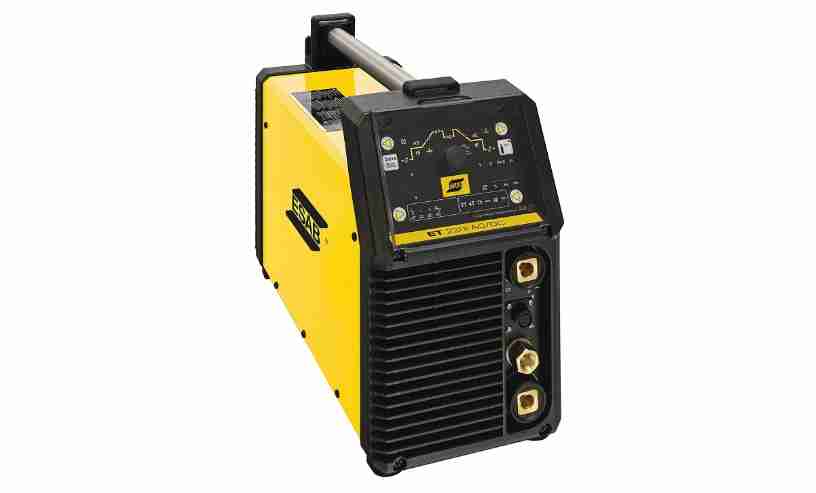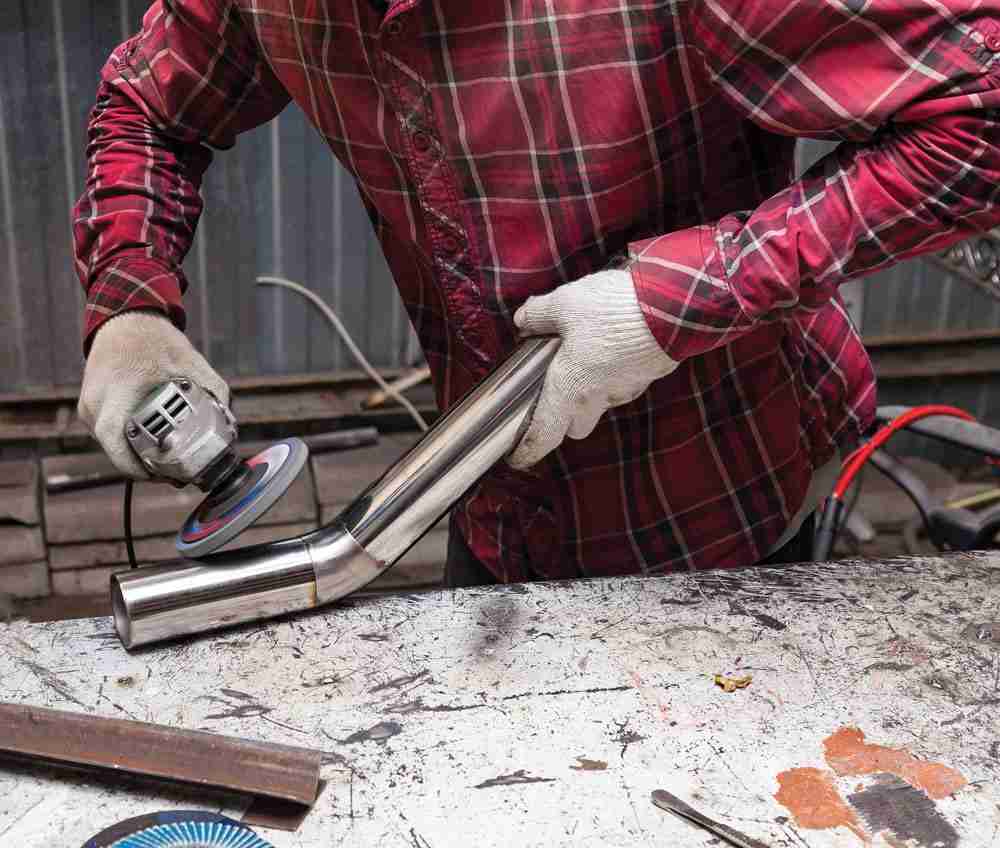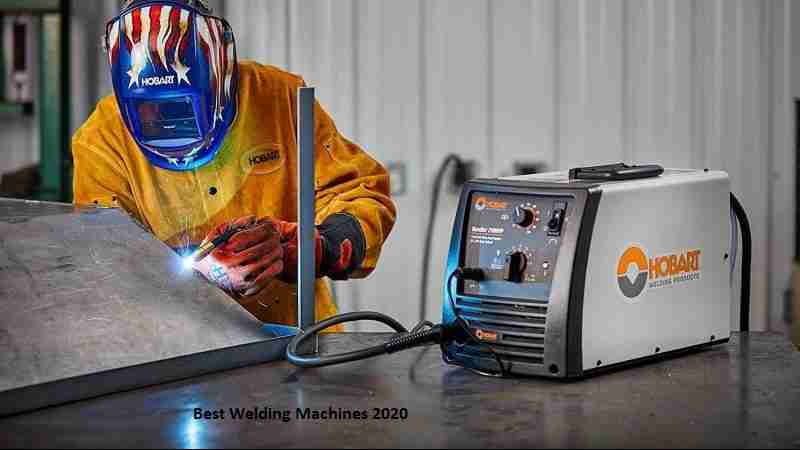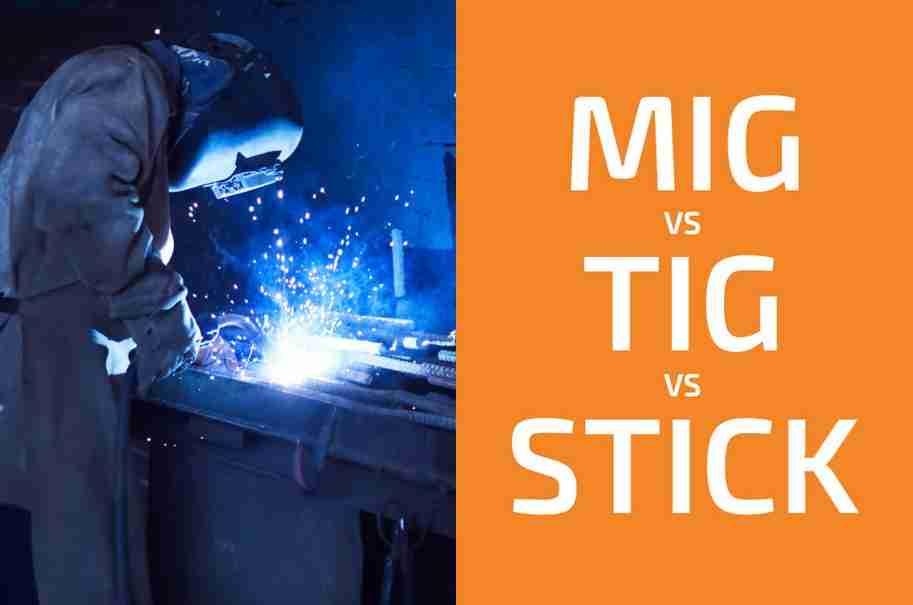Have you ever wondered how to make a jaw-dropping salary of 200k as a welder?
Look no further! This article will explore practical tips and strategies that can help you skyrocket your income in the welding industry.
Whether you are a seasoned professional or just starting your welding journey, these insights will pave the way for a lucrative career in the fascinating world of welding.
So, grab your welding mask, and let’s start on the path to financial success!
1. Obtain the Necessary Education and Certification
As an aspiring welder, obtaining the necessary education and certification is the first step towards building a successful career. This foundation will provide the skills and knowledge needed to excel in the welding industry.
1.1 Research Different Welding Programs
Start by researching different welding programs available in your area. Look for programs that offer comprehensive courses and hands-on training to ensure that you receive a well-rounded education. Consider factors such as program duration, curriculum, and cost when deciding.
1.2 Choose a Reputable Welding School
After researching, choose a reputable welding school that meets your goals and needs. Look for schools with experienced instructors who have industry knowledge and expertise. A reputable welding school will provide the necessary resources and support to succeed in your welding journey.
1.3 Enroll in a Welding Program
Once you have chosen a welding school, take the step to enroll in a welding program. This will provide structured learning opportunities to develop your skills and knowledge. Immerse yourself in the program and take advantage of all the available resources and opportunities.
1.4 Complete the Required Courses
Throughout your welding program, make sure to complete all the required courses. These courses will cover a range of welding techniques, safety protocols, and welding theory. Pay attention to detail and actively engage in learning to gain the most out of your education.
1.5 Obtain Welding Certifications
Upon completing your required courses, consider obtaining welding certifications. Welding certifications demonstrate your proficiency and expertise in specific welding techniques. These certifications can significantly enhance your job prospects and open up new opportunities for career advancement.
2. Build a Solid Foundation of Welding Skills
To succeed as a welder, building a solid foundation of welding skills is crucial. This foundation will serve as the building blocks for your future success and allow you to tackle more complex welding projects.
2.1 Master the Basic Welding Techniques
Start by mastering the basic welding techniques. These techniques include shielded metal arc welding (SMAW), gas metal arc welding (GMAW), flux-cored arc welding (FCAW), and gas tungsten arc welding (GTAW). Perfecting these techniques will lay the groundwork for your career and allow you to execute high-quality welds.
2.2 Gain Experience with Different Metals and Materials
To expand your skill set and versatility as a welder, gain experience working with different metals and materials. Practice welding on metals such as steel, aluminum, and stainless steel. Each metal requires different welding techniques and methods, and becoming proficient in welding a wide range of materials will make you a valuable asset to employers.
2.3 Enhance Your Welding Skills Through Practice
Improvement and growth in welding skills require consistent practice. Dedicate time to perfecting your welding techniques outside your educational or professional responsibilities. Set up a designated workspace at home and regularly practice different welding techniques and positions. This practice will enable you to refine your skills and maintain proficiency.
2.4 Learn Advanced Welding Techniques
Once you fully grasp the basic welding techniques, challenge yourself by learning advanced techniques. This includes techniques such as orbital welding, laser beam welding, and submerged arc welding. Expanding your skillset with advanced techniques will set you apart from other welders and make you eligible for more specialized and higher-paying job opportunities.
2.5 Stay Updated with the Latest Welding Technologies
Keep yourself updated with the latest welding technologies and advancements in the industry. Technological innovations constantly improve the welding process, and staying informed will give you a competitive edge.
Attend workshops and trade shows to learn about new welding equipment, software, and techniques. Embracing these advancements will demonstrate your commitment to excellence and continuous improvement.
3. Gain Professional Experience
In the welding industry, professional experience is highly valued. Hands-on experience will increase your expertise, build your reputation, and open doors to better job opportunities.
3.1 Seek Apprenticeship Opportunities
Consider seeking apprenticeship opportunities with experienced welders or reputable welding companies. Apprenticeships provide valuable on-the-job training and mentorship, allowing you to learn from seasoned professionals. Take full advantage of the learning opportunities an apprenticeship offers, and absorb knowledge from those who have already established successful careers in welding.
3.2 Work in Entry-Level Welding Jobs
Begin your professional journey by working in entry-level welding jobs. These jobs will expose you to real-world welding projects and give you valuable experience working in different industries. While these jobs may not initially offer high pay, they provide a crucial stepping stone toward future growth and advancement in your welding career.
3.3 Learn from Experienced Welders
When working on welding projects, make a conscious effort to learn from experienced welders around you. Engage in conversations, ask questions, and observe their techniques. Experienced welders possess knowledge and practical skills that can significantly enhance your expertise. Be open to feedback and constructive criticism, which will help you improve and refine your techniques.
3.4 Take on Challenging Projects
As you gain experience, seek out challenging welding projects that push you to expand your skills and capabilities. These projects may involve working with unique materials, precise welding specifications, or demanding deadlines. Taking on such projects enhances your skills and demonstrates your willingness to take on complex tasks and deliver high-quality results.
3.5 Develop Specialized Welding Skills
In addition to gaining general welding experience, consider developing specialized welding skills. You can position yourself as an expert in that field by focusing on a specific type of welding, such as pipeline or underwater welding. Specialized welding skills are highly sought after and can lead to lucrative job opportunities and higher earning potential.
4. Expand Your Knowledge Base and Specialize
To further advance your welding career, it is essential to continuously expand your knowledge base and specialize in specific welding areas.
4.1 Pursue Further Education in Welding
Consider pursuing further education in welding by enrolling in advanced courses or degree programs. These educational opportunities will give you a deeper understanding of welding theory, engineering principles, and specialized techniques. Continual learning will enhance your expertise and make you a valuable asset to employers in the welding industry.
4.2 Attend Workshops and Seminars
Stay abreast of industry trends and advancements by attending welding workshops and seminars. These events offer valuable insights into new techniques, equipment, and industry best practices. Additionally, they provide opportunities to network and connect with other professionals in the welding community, fostering collaborative learning and potential career opportunities.
4.3 Obtain Additional Welding Certifications
Consider obtaining additional welding certifications to differentiate yourself in the welding industry further. These certifications demonstrate your expertise in specialized welding areas and open doors to niche job opportunities. Examples of specialized certifications include Certified Welding Inspector (CWI), Certified Welding Engineer (CWE), or Certified Welding Educator (CWE).
4.4 Specialize in a Specific Type of Welding
To stand out in the industry, consider specializing in a specific type of welding. Whether TIG welding, MIG welding, or robotic welding, becoming an expert in a particular welding technique can lead to highly sought-after job positions and increased earning potential. Specializing allows you to develop a deeper understanding and proficiency in your chosen area, setting you apart from generalist welders.
4.5 Become an Expert in Welding Codes and Standards
Familiarize yourself with welding codes and standards applicable to your industry. Each industry has its own set of regulations and specifications governing the quality and safety of welds. Becoming an expert in these codes and standards will ensure you can produce welds that meet or exceed expectations and position you as a reliable and knowledgeable professional.
5. Network within the Welding Industry
Networking plays a crucial role in advancing your welding career. Building professional relationships within the welding industry can lead to valuable connections, job opportunities, and continuous learning.
5.1 Join Welding Professional Organizations
Join welding professional organizations such as the American Welding Society (AWS) or the International Institute of Welding (IIW). These organizations provide access to a vast network of industry professionals, resources, and educational opportunities. Actively participate in networking events, conferences, and workshops these organizations organize.
5.2 Attend Trade Shows and Conferences
Attend trade shows and conferences related to welding and fabrication. These events bring together industry professionals, suppliers, and manufacturers, offering opportunities to expand your network and stay updated on the latest industry trends. Engage in conversations, exchange contact information, and follow up with potential connections to foster mutually beneficial relationships.
5.3 Participate in Online Welding Communities
Engage with online welding communities and forums to connect with fellow welders worldwide. Participate in discussions, share your knowledge, and seek advice from experienced professionals. Online platforms such as welding forums and social media groups provide opportunities to learn from others, gain insights into different welding practices, and establish meaningful connections.
5.4 Build Relationships with Industry Experts
As you network within the welding industry, make an effort to build relationships with industry experts. These individuals possess significant knowledge and experience and can serve as mentors or provide guidance throughout their careers. Foster these relationships by seeking advice, collaborating on projects, or seeking opportunities to learn from their expertise.
5.5 Seek Mentorship Opportunities
Find a mentor within the welding industry who can guide you and provide valuable insights. A mentor can share their experiences, offer career advice, and help you navigate challenges. Look for experienced welders willing to invest their time and knowledge in your development as a welder. Mentorship can be instrumental in accelerating your career growth and achieving your long-term goals.
6. Market Yourself and Build a Strong Reputation
To maximize your earning potential as a welder, it is essential to market yourself effectively and build a strong reputation within the industry.
6.1 Create a Professional Welding Resume and Portfolio
Craft a professional welding resume and portfolio highlighting your skills, certifications, and experience. Tailor your resume to showcase relevant industry experience and emphasize your accomplishments.
In your portfolio, include examples of projects you have worked on, highlighting your work scope and contributions. A well-crafted resume and portfolio will leave a lasting impression on potential employers.
6.2 Showcase Your Welding Skills and Projects
Demonstrate your welding skills and expertise by showcasing your completed projects. Document your work with high-quality photographs, videos, or detailed descriptions. Create an online portfolio or website where potential clients or employers can view your work. Showcasing your skills effectively will help you stand out and attract lucrative job opportunities.
6.3 Build an Online Presence
Establish a solid online presence to enhance your visibility in the welding industry. Create professional profiles on platforms such as LinkedIn or welding-specific websites. Share your work and industry insights, and engage in discussions. Consistently update your profiles with your latest projects, certifications, and achievements. Your online presence will act as a virtual resume, enabling potential clients or employers to discover your skills and expertise.
6.4 Obtain Welding Contractor Licenses
If you aspire to work as an independent welding contractor, consider obtaining the necessary licenses and permits. Research the requirements in your jurisdiction and ensure you comply with all legal and regulatory obligations. The appropriate licenses and permits will establish your credibility and allow you to bid on larger projects or work independently.
6.5 Provide Quality Service and Exceed Expectations
One of the most effective ways to build a strong reputation in the welding industry is to provide quality service and exceed client or employer expectations consistently.
Focus on delivering high-quality welds, completing projects on time, and demonstrating professionalism in all aspects of your work. You will develop a positive reputation and attract repeat clients or employers by consistently providing exceptional service.
7. Find High-Paying Welding Jobs
Finding high-paying welding jobs requires strategic planning and a targeted approach. You can increase your earning potential by focusing on industries with high demand and exploring specialized welding fields.
7.1 Research Welding Industries with High Demand
Conduct research to identify welding industries with high demand for skilled welders. Industries such as oil and gas, construction, manufacturing, and aerospace often consistently need welding services. Stay informed about industry trends and upcoming projects offering lucrative job opportunities. Target your job search towards industries experiencing growth and high demand for welders.
7.2 Explore Opportunities in Specialized Welding Fields
Consider exploring opportunities in specialized welding fields that offer higher pay rates. These fields may include pipeline welding, nuclear welding, or underwater welding.
Specialized welding requires additional training and certifications but can significantly increase your earning potential. Gain the necessary skills and certifications to seize high-paying job opportunities in these specialized fields.
7.3 Consider Traveling or Relocating for Better Pay
Be open to the possibility of traveling or relocating for better-paying welding jobs. Some regions or countries may offer higher wage rates or have shortages of skilled welders.
By being willing to travel or relocate for work, you can tap into job markets that offer higher compensation. This flexibility can significantly enhance your earning potential as a welder.
7.4 Connect with Welding Staffing Agencies
Consider connecting with welding staffing agencies to access more job opportunities. Staffing agencies specialize in matching skilled welders with companies seeking their expertise. By working with these agencies, you can access a vast network of potential employers, receive assistance with job placement, and negotiate competitive salaries and benefits.
7.5 Negotiate Your Salary and Benefits
Don’t hesitate to negotiate your salary and benefits when offered a welding job. Research industry-standard wage rates and understand your worth as a skilled welder. Highlight your experience, certifications, and accomplishments during the negotiation process. Negotiating your compensation package can increase earnings and better overall employment terms.
8. Start Your Own Welding Business
For those looking for greater independence and control over their earning potential, starting your own welding business can be lucrative. However, it requires careful planning and execution.
8.1 Develop a Business Plan
Start by developing a comprehensive business plan that outlines your goals, target market, competition analysis, financial projections, and marketing strategies. A well-crafted business plan will serve as a roadmap for your welding business and help secure funding.
8.2 Secure Funding for Your Welding Business
Identify potential funding sources for your welding business, such as loans, grants, or investors. Approach financial institutions or explore government programs that support small businesses in the welding industry. Present your business plan and demonstrate the potential profitability of your venture to secure the necessary funds.
8.3 Obtain Necessary Licenses and Permits
Before commencing operations, ensure you obtain all the necessary licenses and permits to run a welding business. Research the specific requirements in your jurisdiction and complete the necessary paperwork. Compliance with legal and safety regulations will establish your business’s credibility and protect you from potential liabilities.
8.4 Invest in Quality Equipment and Tools
Investing in quality equipment and tools is crucial for the success of your welding business. Purchase welding machines, protective gear, and related tools suitable for the projects you aim to undertake. High-quality equipment will produce better results and increase your efficiency and productivity.
8.5 Market Your Welding Business Effectively
Market your welding business effectively to attract clients and generate revenue. Create a professional website, establish a solid online presence, and effectively market your services on social media platforms.
Network with other professionals in related industries, such as construction or manufacturing, to build mutually beneficial relationships. Leverage word-of-mouth referrals and customer testimonials to establish credibility and gain new clients.
9. Continuously Improve and Adapt
Welding requires professionals to continuously improve their skills and adapt to changes in an ever-evolving industry. To stay ahead, embrace lifelong learning and adaptability.
9.1 Stay Updated with Industry Trends and Innovations
Stay abreast of industry trends and innovations by regularly researching and reading welding publications, journals, and websites. Explore industry-specific blogs or podcasts to learn about emerging techniques, materials, or equipment. Understanding the latest trends and innovations will make you an informed and knowledgeable welder.
9.2 Attend Welding Training Programs and Courses
Continually invest in your professional development by attending welding training programs and courses. These opportunities allow you to refine your skills, learn new techniques, or gain familiarity with the latest advancements in welding technology. Use in-person and online training programs to stay current and enhance your welding abilities.
9.3 Embrace New Welding Techniques and Technologies
Be open to embracing new welding techniques and technologies as they emerge. The welding industry continuously evolves, and adopting innovative methods can improve your productivity and open up new opportunities. Stay flexible, adaptable, and willing to learn and implement new techniques to improve efficiency and quality.
9.4 Seek Feedback and Learn from Mistakes
Seek feedback from your clients, colleagues, or mentors to identify areas for improvement. Actively solicit input on your welding projects and techniques. Constructive feedback can help you identify weaknesses or areas where you can refine your skills. Learn from your mistakes and use them as valuable opportunities for growth and development.
9.5 Adapt to Changes in the Welding Industry
As the welding industry evolves, be prepared to adapt to changes. Stay informed about new regulations, safety measures, or changes in welding processes. Embrace new technologies that improve efficiency or address environmental concerns. By adapting to changes, you position yourself as a forward-thinking professional and remain relevant in the competitive welding industry.
10. Maintain a Strong Work Ethic and Professionalism
Maintaining a solid work ethic and professionalism is crucial to long-term success as a welder. Consistently exhibiting these qualities will contribute to your reputation and open doors to new opportunities.
10.1 Be Punctual and Reliable
Always prioritize punctuality and reliability in your work. Arrive for shifts or project appointments and complete tasks within the agreed-upon timeframes. Demonstrating punctuality and reliability shows respect for others’ time and builds trust with clients or employers.
10.2 Communicate Effectively with Clients and Colleagues
Effective communication is essential in any profession, including welding. Convey information to clients or colleagues, ensuring everyone understands project requirements, timelines, and safety protocols. Actively listen to others and respond promptly to inquiries or concerns. Good communication skills foster collaboration and contribute to successful outcomes.
10.3 Prioritize Safety and Follow Welding Guidelines
Never compromise on safety in the welding profession. Adhere to established safety protocols and guidelines to protect yourself and others from potential risks. Regularly update your knowledge of safety practices and stay informed about changes in industry safety standards. Always prioritize safety to create a work environment that values the well-being of everyone involved.
10.4 Continuously Improve Your Productivity
Strive to improve your productivity and efficiency in completing welding projects. Evaluate your workflow and identify opportunities to streamline processes or eliminate unnecessary steps. Use efficient techniques and leverage technology to optimize your productivity. Continuous productivity improvement will help you complete projects more effectively and potentially increase your earning potential.
10.5 Demonstrate Dedication and a Positive Attitude
Display dedication and enthusiasm in your work, and maintain a positive attitude even in challenging situations.
Welding can be physically demanding, and projects may pose unexpected difficulties. Demonstrating dedication and a positive attitude elevates the quality of your work and draws respect and recognition from clients, colleagues, and employers.
By following these steps, you can establish a successful career in welding and potentially earn a high income. Building a successful welding career requires continuous learning, adaptability, and dedication to excellence. With the proper education, skills, experience, and mindset, you can thrive in the welding industry and achieve your financial goals.


